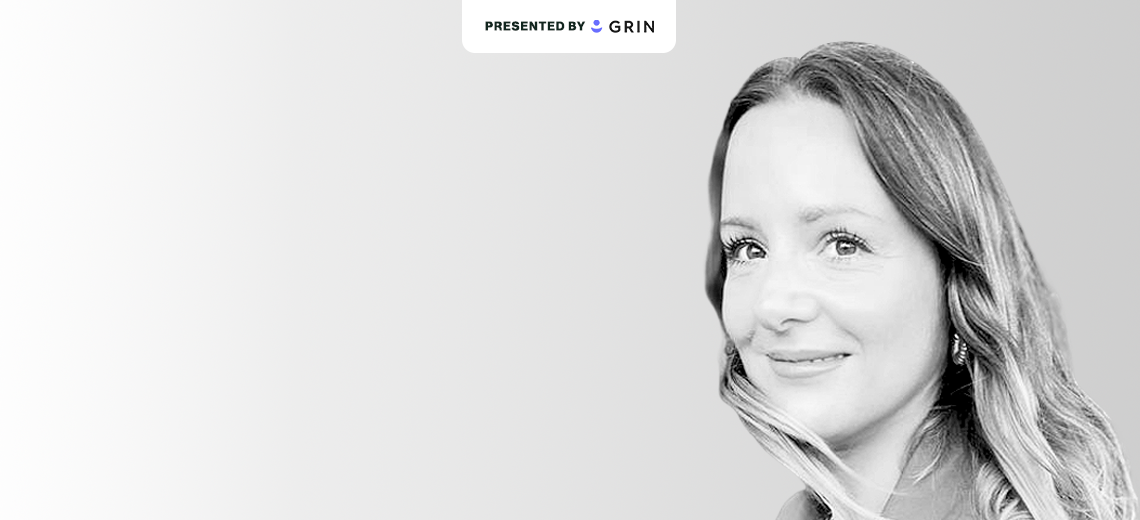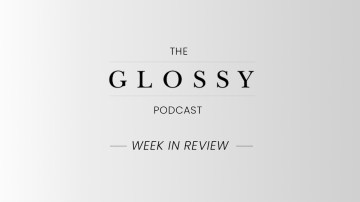This is an episode of the Glossy Fashion Podcast, which features candid conversations about how today’s trends are shaping the future of the fashion industry. More from the series →
Subscribe: Apple Podcasts | Stitcher | Google Play | Spotify
Launched in 2019, Marfa Stance aims to offer an innovative, more sustainable solution to the consumer desire for variety and constant newness: adaptable, enhanceable clothing.
“To me, ‘modular’ is a way of unlocking your creativity,” said Georgia Dant, founder and CEO of Marfa Stance, on the latest Glossy Podcast. “You [get to] design your own piece for your lifestyle or for whatever functionality or occasion you’re going to.”
That way of dressing is catching on, including among fashion “it” girls, many of whom have shown support for Marfa Stance without a paycheck.
In the year ahead, Dant aims to host more in-person events and to open branded stores, granting online customers more access to the brand and its concepts.
Below are additional highlights from the conversation, which have been lightly edited for clarity.
Appealing to the conscious consumer and beyond
“Sustainability is an interesting topic. There are so many brands wanting to be sustainable and so many different facets of sustainability that, as a brand, you have to, sort of, pick your lane on that. And for me, it was about offering a solution to people to be able to keep something for a really long time. And my solution to that was being able to update it constantly and having it made to a luxury level, so that it did actually last. The conscious consumer is definitely finding us for our [sustainability]. But there are also [those with] the global traveler mindset – the brand and the offering of the pieces are actually very efficient for traveling. You pack less, but you pack more accessories, so therefore you have multiple coats when you actually just have to pack one… To buy less, these things have to do more for you. Otherwise, you’re just going to buy more. And [the brand] is also for the understated, very discerning customer who’s looking for something that’s really beautifully made – that has an identity, but isn’t screaming a brand. It’s being able to offer that discerning customer something that they can make their own. And that’s what’s unique about this brand. Five different people can be wearing the same thing, but they’re all wearing it in different ways with different accessories.”
Know before you grow
“When I first started [the business], it was purely me funding it. So this leap of faith was a real leap of faith — financially, mentally and physically. I realized that, for me to do this, I wanted to do it myself. I wanted to make mistakes with my own money. Everyone makes errors when you’re starting out, because you don’t know what you’re doing — I didn’t want the pressure of doing that with other people’s money. I wanted to know everything before I could then ask for certain things and employ people to do certain things for me. And I feel very happy — even though it was very stressful — that I did it that way. I feel much more informed. I did fundraise after about 18 months, in a small way. But for me, in knowing the journey of the first 18 months, to get to that point, I felt much more ready to fundraise in a more informed way. I knew what I needed the money for, what was working, what wasn’t, how to expand in a thoughtful and meaningful way – rather than just expanding, which doesn’t make any sense. It was the same process with employing a team, as well — just really understanding, personally, what needed to be done and then employing appropriately.”
Brexit’s impact
“When I started the brand, I didn’t identify a customer, I just identified a value set and a mindset. And that actually has really helped the brand to be quite adaptable. So really, there’s not a type of customer and there’s not a location in the world that is the most popular. It’s really global, in the sense that, from the first month of launching the brand, I had orders from New York, London and, actually, Germany. So it was Europe, it was the U.S. and, actually, New Zealand, quite strangely. So immediately, it was global, which was interesting. And that hasn’t changed. It’s still very global — we ship all over the world. I would say our main markets are the U.K. in the U.S. Unfortunately, Scandinavia and Europe were growing for us, but Brexit has kind of killed that, which is a real shame. So I’m trying to figure out how to reconnect with our European community. We actually went to Rome two weeks ago to do a pop-up, because we have an Italian following – with the shipping rules, it’s been quite difficult. So we’re trying to maybe do more in-person events in Europe and to make sure that we can grow that business, as well.”




